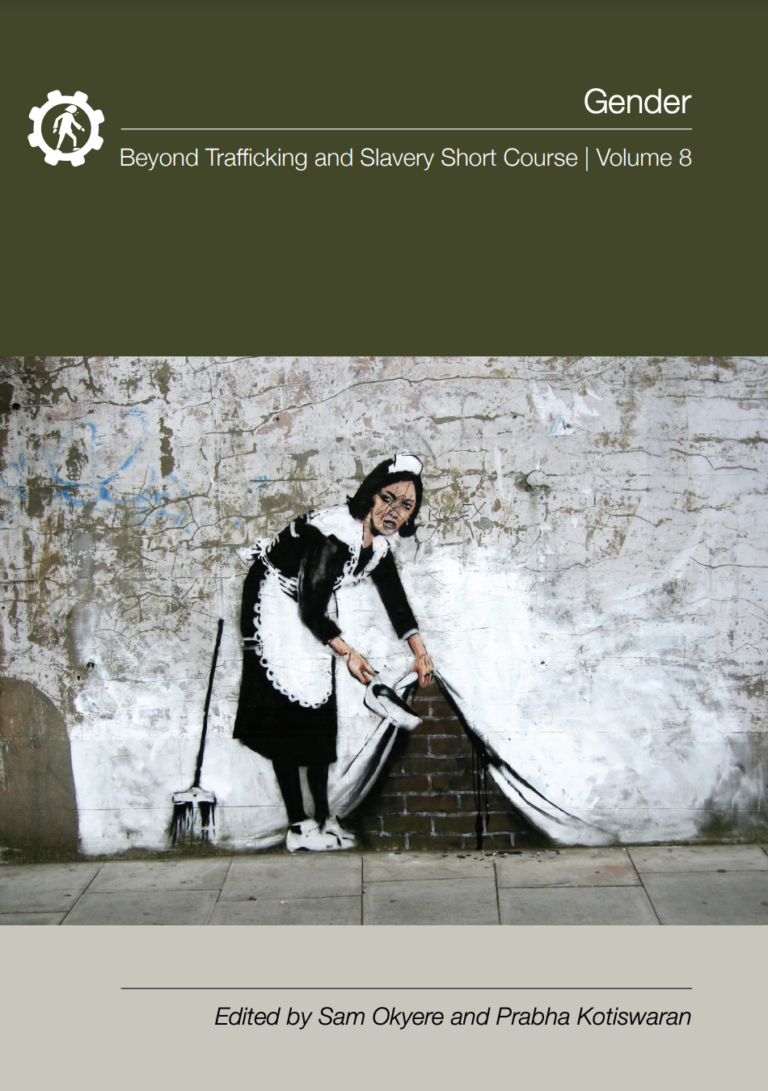Edited by Sam Okyere and Prabha Kotiswaran.
This is the eighth volume of the series Beyond Trafficking and Slavery Short Course.
Women and girls, ‘new abolitionists’ say, are disproportionately affected by trafficking because of their prevalence in domestic, care, and sex work. This volume questions the selective focus on these activities, which are alternately characterised as violence and work. It also interrogates still-unresolved questions regarding the status of such work, as well as the ways in which it is understood, valued, recognised, and regulated. Our contributors highlight how gendered inequalities within and between households, as well as within and between nations, anchor the structural violence of global capitalism. Their calls for action push back against the present tendency to dwell on the images of the passive, innocent, vulnerable female victim whose only option is to be ‘saved’ from bad men. Interventions based on such imagery too often result in women being ‘rescued’ into situations that do little to improve their circumstances and worse still perpetuate their experiences of domination. Instead, they argue for an emancipatory agenda that fully values the labour and agency of women, one which dismantles prejudice and constraint rather than saves them back into a deeply unequal system.

